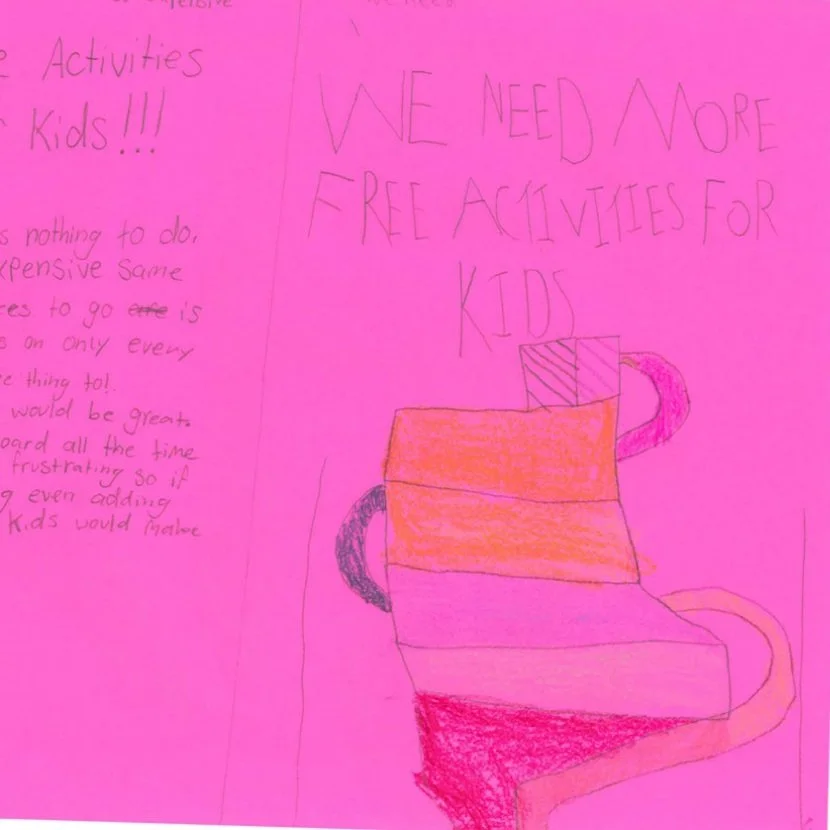In the Spring 2024 Edition of the Canberra Disability Review, Editor Rob Donnelly sat down with Hannah Orban to discuss the Grattan Institute’s (@GrattanInst) recent report “Better, Safer, More Sustainable. How To Reform NDIS Housing and support”. Today’s blog piece shares key parts of their interview, highlighting key issues with the current NDIS housing system and opportunities for improvement. You can read the original interview here.
Read MoreThis year, Anti-Poverty Week 2024 (13-19 October) continues its campaign to end child poverty in Australia. Dr Bonnie Searle (@BonnieSearle3) from The University of Queensland (@UQ_News) and the Life Course Centre (@lifecourseAust) has been examining meals in early childhood centres for children experiencing poverty, and how ensuring the quality and quantity of the food can help children thrive from an early age.
Read MoreThe term “social impact strategy” is often used but not always understood. Dr Rhiannon Parkerexamines how organisations can build approaches that drive lasting change.
Read MoreMeasurement culture is becoming increasingly necessary for organisations striving to maximise their social impact. Dr Rhiannon Parker examines why this is important for helping the for-purpose sector stay relevant and effective in a rapidly changing landscape.
Read MoreThis week Prime Minister Anthony Albanese announced the government's plan to introduce legislation to ban younger teens from social media. Today, Cadhla O’Sullivan (@CadhlaOSull) and Sharon Bessell (@BessellSharon) from the Children’s Policy Centre at ANU, highlight what other approaches are worth considering.
Read MoreWithin mental health research and service delivery, involvement of experts by experience has become increasingly common. The involvement of experts by experience allows for the design and delivery of research that is of higher quality and more rigorous.
Transitioning out of youth-focussed lived experience groups is a matter that is not well understood and, for many reasons, complex. It can be difficult to transition from the role of being a young contributor to research into a professional in the Public and Patient Involvement space. Working in lived experience roles, either as ‘lived experience practitioners’, ‘peer support workers’, ‘PPI facilitators’ or ‘involvement officers’ can be complex and the relationships you hold in these spaces vary depending on your positioning within either the group or the organisation (Carr, 2019).
In this blog we explore the experience of Beckye, a former Youth Advisory Group (YAG) member for the University of Birmingham’s Institute for Mental Health as she begins the making this transition into an employee in a Youth Involvement Officer. The blog takes the form of responses to an with Beckye (Youth Involvement Officer) and Niyah (Senior Patient and Public Involvement and Engagement Lead). The interview offers early reflections that may be of use to organisations or individuals who may be supporting folk undertaking these transitions or in the process of negotiating the transition themselves.
Read MoreExploring the pressing need for trauma-informed care in Australia's National Housing and Homelessness Plan, Research Fellow Chris Hartley sheds light on the deep links between trauma and homelessness while advocating for a unified, comprehensive approach to address the issue in line with global best practices.
Read MoreLGBTIQA+ people are more likely to experience marginalisation, stigma, social exclusion, abuse, and violence than the wider community. Philippa Moss, CEO of ACT-based LGBTIQA+ peer-led health service Meridian, and Alison Barclay, researcher and social impact consultant, explain how peer-led services are helping to address this gap, and what more needs to be done.
Read MoreIn today’s post, moderator Dr Rae West @raelene_west discusses the balance between the roles of the NDIS Quality and Safeguarding Commission and Community Visitor schemes in deterring and preventing harm to people with disability utilising funded support services in accommodation settings and homes.
Read MoreIn today’s analysis, Megan Elias discusses the impact of recent reforms to abortion law in Western Australia. Megan is a women’s and sexual health professional based in Boorloo, working across government and the not-for-profit sector. Megan is WA representative and Secretary for the Australian Women’s Health Network (@AusWomensHealth).
Read MoreThe sheer scale of placement breakdown and change for children in care in the UK has gathered increasing attention in recent years. We know that children and young people in residential care are more likely to experience placement breakdown and movement, often due to entering care later in adolescence, or being placed children’s homes which are inappropriate to meet their needs as a short term or emergency measure. It has also been noted that private residential placements can pose significant financial costs to local authority children’s services. In this blog, Helen Woods argues that it is vital then to consider what contributes to the success or failure of a residential placement.
Read MoreMany women who experience family violence, many reach out to a healthcare professional. In today’s analysis, Dr Joyce Chia (@JoyceKWChia), Policy & Advocacy Lead at Health Justice Australia (@HealthJusticeAu), asks how we can better equip the health system to respond to violence against women and children. Health Justice Australia is a national not-for-profit centre of excellence that supports the expansion and effectiveness of health justice partnerships.
Read MoreSince Australia’s National Disability Insurance Scheme was created nearly ten years ago, its roll out has been closely scrutinised by governments, policymakers, researchers, and advocates. Dr Sue Olney, Dr Amber Mills and Liam Fallon discuss their research into how working-age people with disability without NDIS funding are faring. Their findings reveal a huge gap between talk and action on disability inclusion.
Read MoreInnovation is at the heart of plans to reform adult social care across the four UK nations. In this blog, Nuffield Foundation POST Fellow, Katherine Davis explains that conversations with people who have experience of adult social care are vital to effective innovation.
Read MoreWhether a child feels they belong at school can have a significant impact on their prospects after graduating from high-school. Dr Rhiannon Parker discusses her recent research that shows that low school belonging is a risk factor for whether someone is Not in Employment, Education, or Training (NEET) after leaving compulsory schooling.
Read MoreHealth literacy is increasingly seen as a way to reduce health inequities. But are we relying too heavily on a concept that is becoming too broad to wield? Dr Jane Lloyd discusses if and how we can improve health literacy to address disadvantage.
Read MoreIn today's post, Dr Raelene West (@raelene_west) discusses the history and current state of Australia's National Disability Insurance Scheme. She argues that the NDIS is at a critical juncture, and that its success hinges on people with disability having a more significant role in its design and delivery. Dr West is a sociologist based at the Melbourne Disability Institute at the University of Melbourne, and she has lived experience of disability.
Read MoreYoung people with lived experience of self-harm or suicidal behaviour should be at the forefront of designing, evaluating and implementing suicide prevention research.
Controversial? Unfeasible? Risky?
You name it. As a suicide prevention researcher I have heard it all…by funders, ethics committees, Higher Education Health and Safety committees to name a few.
In this blog, I (Dr Maria Michail) share my experience of working in partnership with young people with lived experience of self-harm and suicidal behaviour to co-design of a guide titled “Visiting your General Practitioner: A guide for young people with lived experience of self-harm and suicidality”.
Read More




















